NewStart recently travelled to Bristol to see if the city’s reputation for creativity and innovation can help tackle some of its infamous inequalities. In the second of a four-part series, Thomas Barrett met Melissa Mean, the driving force behind the innovative We Can Make project.
Built in the years following the First World War as ‘homes fit for heroes’, Bristol’s Knowle West estate might not look like a hotbed of innovation. The hedgerows are just about trimmed and life ticks along.
However, there is a housing mini-revolution taking place that could eventually see hundreds of one and two-bedroom affordable modular units built in back gardens or in-between spaces.
The We Can Make project is a labour of love for Melissa Mean of Knowle West Media Centre. She’s determined to create a model that reconnects communities to housebuilding and utilises what she calls the ‘trades galore’ within the area.
‘You have a real richness and pent-up energy to change things here,’ she says.
Microplots
So far around 80 Knowle West residents have registered an interest in utilising their microplots to build modular homes for people who have been either ignored or failed by the conventional housing system.
These could be young families trapped in poor quality private rented accommodation or older couples who are downsizing but want to stay in their neighbourhood close to friends and family.
The We Can Make prototype was built in late 2017, using locally manufactured components, sustainable materials and locally-employed labour.
Residents can stay for free in the home to try it out, and it also generates income for the community through Airbnb. Over 150 people have stayed in the home so far, including Bristol Mayor Marvin Rees.
The wooden structure has energised locals, both young and old.
‘A seven-year-old boy came when it was built, and he chose his birthday to have an overnight stay with his mum,’ says Melissa.
‘To him, it was better than bowling or Laser Quest. He was totally inspired.’
Harnessing assets
Knowle West’s shopping precinct. Photo Credit – Jez McNeil.At the current rate, it may be a long time before that boy owns his own home. House prices are in Bristol on average 11 times local salary levels — so for many unless they beg, steal or borrow a deposit from family members, owning property remains a distant pipe dream.
The waiting list for council housing is getting longer too.
Melissa says to get a council house here you ‘have to prove how incapable you are’.
So instead, We Can Make asks what assets, know-how and resources that a community has, looking at what can be harnessed to create truly affordable housing.
‘[The community] don’t really have a role in shaping their own housing solutions,’ says Melissa.
‘They are presented with a really limited menu of whatever a commercial housebuilder wants to build — and their interest isn’t building homes, it’s just making a profit.’
‘You’re also twice as likely to be rejected for planning here than wealthier neighbourhoods in Bristol. People want to change but the system says no.’
Following the prototype, We Can Make will soon unveil six or seven different modular designs that are sustainable, affordable and suit the different needs of local people.
‘Just craning in modular units doesn’t really do much for the local economy,’ says Melissa.
To help ease units through planning, We Can Make are also working on a community design code so people can choose which design they want.
The criteria will be set by the community around sustainability and localising the production, and they are currently undertaking an audit of all the local companies that might fit the bill.
‘It’s not about buying up land and putting containers in back gardens. It’s about delivering at the point of need,’ says Melissa.
Chicken and egg
Melissa is hopeful of soon getting funding for the first batch of homes, 16 or so, and working through the land assembly process.
Echoing Jez Sweetland of the Bristol’s housing festival when he spoke to NewStart, Melissa says accessing finance through banks, who are often suspicious of smaller, more innovative projects, has been a challenge.
‘We don’t have the borrowing power,’ she says, ‘so somebody has to underwrite that risk. It could be a housing association or a council to act as a broker.
‘It’s a chicken and egg thing. Once a community has its own assets that it can borrow against then it can scale itself but the moment we need that risk bridge to borrow effectively.’
We Can Make are currently testing what people’s appetites are or what the banks will tolerate, but she foresees both mutual home ownership options available as well as affordable rent models, so those who want to buy can.
‘We have a great home here that shows what’s possible but all the knotty stuff around finance and legals and meat of the project is difficult,’ she says.
‘Getting hands dirty with that stuff isn’t for the faint-hearted.’
Everything is possible
We Can Make were at last year’s Bristol Housing Festival showcasing the prototype and Melissa says she is proud to continue Bristol’s reputation for ‘trying things out and having a go’.
But she says the project must not promote a race to the bottom in terms of space standards, which is a common criticism of the modular approach.
In five years time, Melissa hopes there will be over 100 homes in Knowle West, a small housing factory as well as homes in other parts of Bristol and beyond. She says it won’t solve all the answers but the project adds another tool for people to do the type of housing they would like.
‘The housing industry has a deliberate veil over it– keeping it complicated and out of sight.
‘With this everything is possible.
‘There are things going on — but sometimes central government need giant things to stand in front of, but misses how the smaller scale can add up to something revolutionary.’












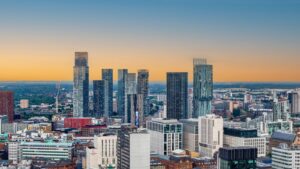
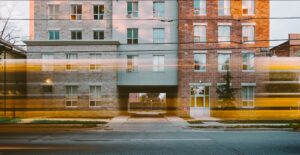

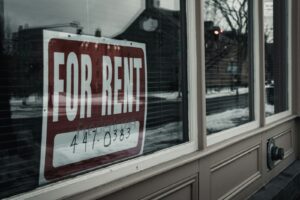
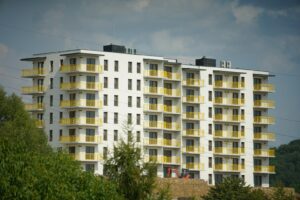
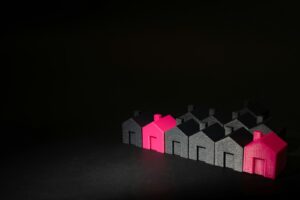
Leave a Reply